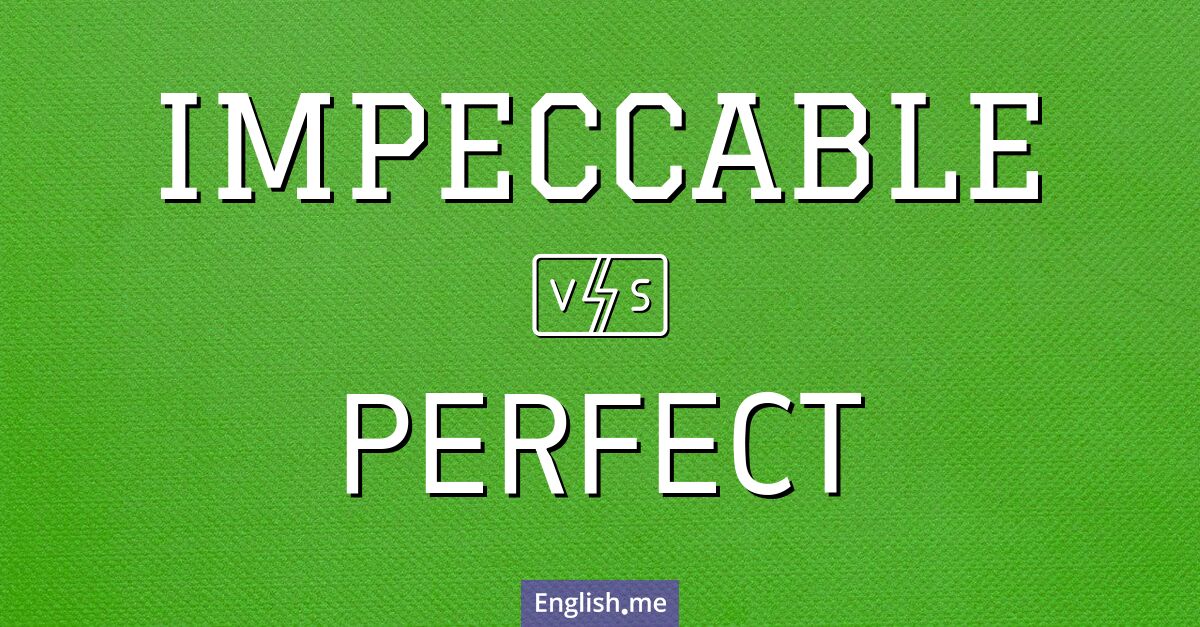"Impeccable" vs. "perfect": subtle shades of flawlessness
Reviewed and edited by  Lloyd Cooper 02/02/2025, 07:30
Lloyd Cooper 02/02/2025, 07:30
English.me team member

 What is similar?
What is similar?
Both "impeccable" and "perfect" describe something that is free from faults or errors, expressing a high degree of excellence or flawlessness.
 What is different?
What is different?
"Impeccable" often refers to behavior, taste, appearance, or standards that are faultless according to moral or social norms, whereas "perfect" is a more general term used for anything that is considered completely free from defects or as good as it can possibly be.
 Which one is more common?
Which one is more common?

 Examples of usage
Examples of usage
Impeccable- She dressed with impeccable taste.
- His manners were impeccable.
- The chef prepared an impeccable meal.
- She scored a perfect 100 on the test.
- It was a perfect day for a picnic.
- He found the perfect gift for her birthday.

 English
English español
español française
française italiano
italiano deutsche
deutsche 日本語
日本語 polski
polski česky
česky svenska
svenska Türkçe
Türkçe Nederlands
Nederlands